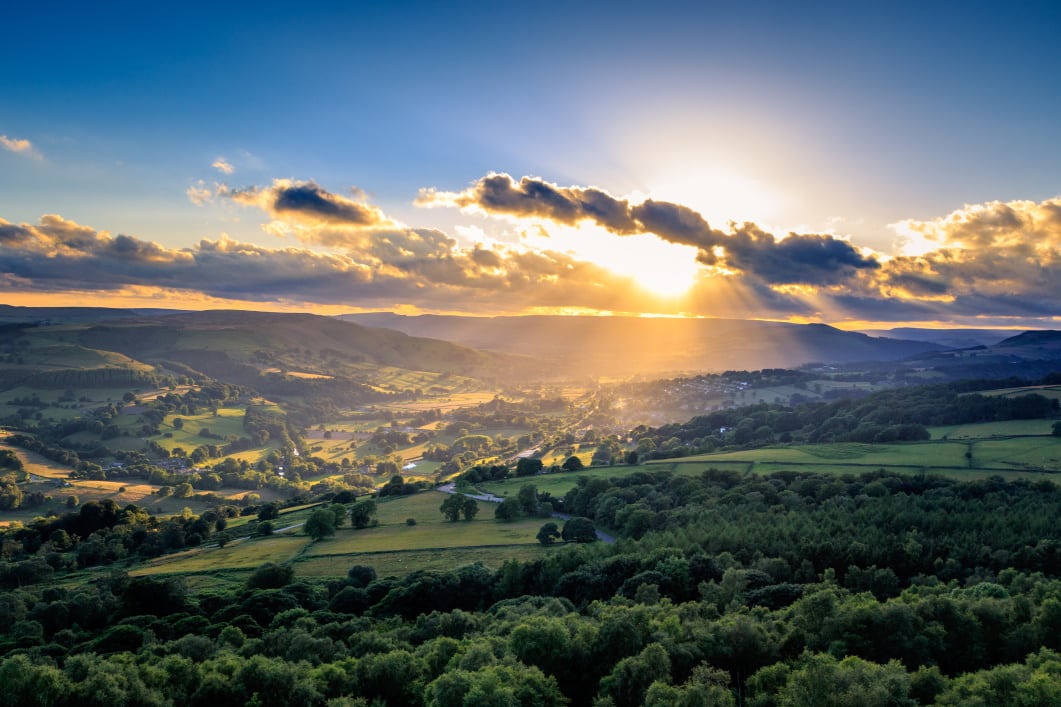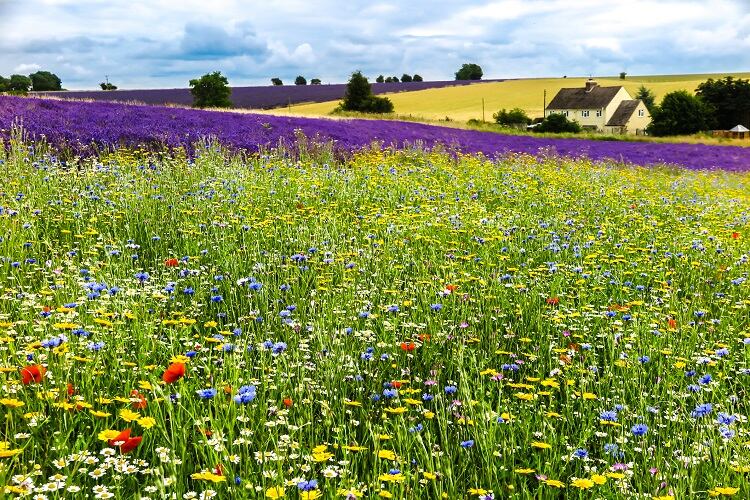Reform of the EU’s CAP subsidy programme looks set to kick up a gear.
The European Council, comprised of leaders of Europe’s member states, reached an agreement on a post-2020 CAP package when agriculture ministers met this morning (21 October). The deal was presented as a ‘milestone’ for Europe's agricultural policy that, the Council said, fulfils the aspiration of a ‘greener, fairer and simpler’ CAP.
The Council insisted that the agreed position puts forward some ‘strong commitments’ from member states for ‘higher environmental ambition’ with instruments like mandatory eco-schemes, which it described as ‘a novelty compared to the current policy’. The approach allows member states ‘greater flexibility’ in how they reach environmental goals with power over how to allocate funds under these eco-schemes to support green practices.
The Council meeting was deemed as the ‘most important in a decade’ by German agriculture minister Julia Klöckner, who chairs agricultural issues during Germany’s EU presidency.
Meanwhile, voting in the European Parliament began yesterday on a proposal that has secured the backing of the EP’s three largest political groups, the People's Party, the Socialists and Democrats and the Renew Europe group. While more votes are set to come in this week, it looks likely that MEPs will back this common negotiating stance.
Proponents of the EP proposal also highlight its green credentials, claiming it contains provisions that go beyond the Commission's 2018 CAP offer, including the ring fencing of 30% of direct payments for the eco-schemes, and 35% for green spending out of the rural development coffers.
Inter-institutional negotiations on the Commission’s legislative initiative to reform CAP will begin in earnest between three arms of the European body politic when Parliament and the Council have secured the mandates of their respective institutions.
Environmentalists cry foul
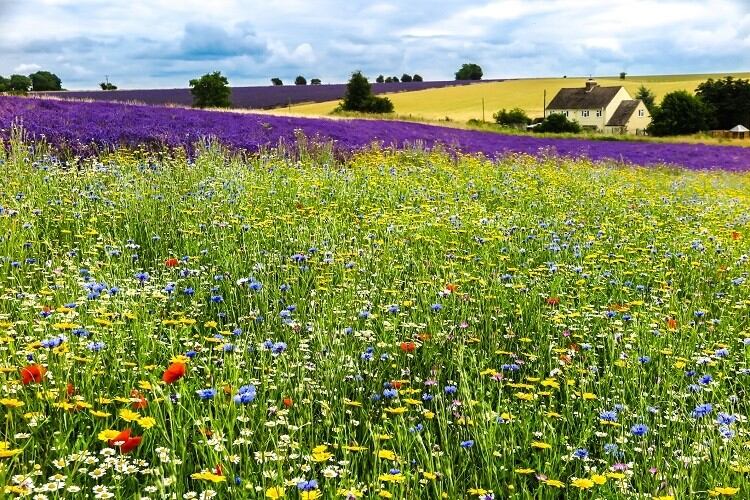
Despite the green credentials, the proposals – particularly those under discussion in the European Parliament – have enraged environmental parties such as the Greens as well as campaigners and NGOs.
Green MEP and vice president of the Environment, Public Health and Food Safety Committee in the EP, Bas Eickhout, stressed that the position currently under consideration in the EP is a significant step-back from the European Commission’s initial proposals.
"Climate change and ecological breakdown pose a severe threat to farming, our food system and our future on this planet and yet a large number of MEPs are wilfully ignoring the enormous scale of the problem. Unfortunately, the EPP, Socialists and Renew groups want to water down the already weak proposals of the Commission by continuing with 60% of direct payments with very weak conditions,” Eickhout commented.
"The few measures thrown in for the environment, climate and animal welfare are so weak that even the use of pesticides could pass as environmentally friendly.”
Greenpeace’s dramatic rhetoric went as far as to cast the proposals as the death knell for family farming and green agriculture in Europe.
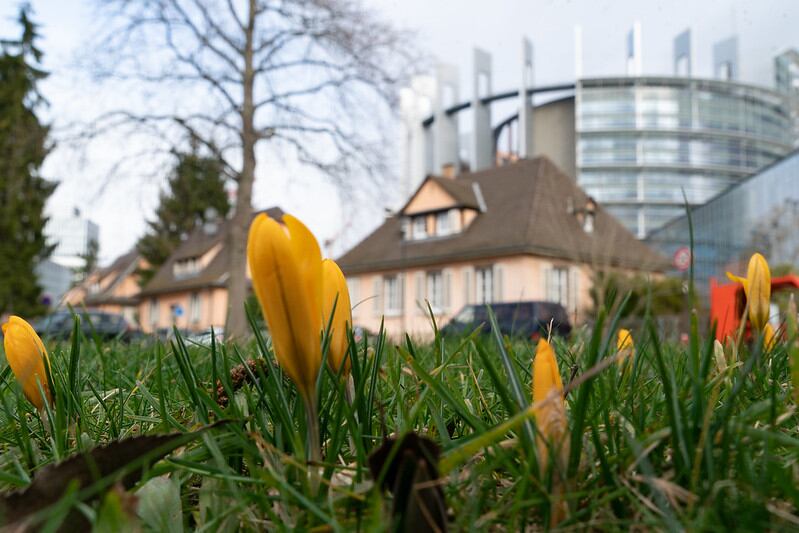
“MEPs have signed a death sentence for nature, climate and small farms, which will keep disappearing at an alarming rate. For over 60 years, European farm policy has been blind to farming’s impact on nature, rewarding farmers for producing more or expanding their farms. The EU Parliament is wilfully continuing that destruction while scientists warn that farming must change to tackle the climate crisis and protect nature. This could turn out to be a death sentence for the aims of the European Green Deal too,” Greenpeace EU agriculture policy director Marco Contiero warned.
Dr Guy Pe’er, ecologist at the German Centre for integrative Biodiversity Research (iDiv) and the Helmholtz Centre for Environmental Research (UFZ), told FoodNavigator that he does not believe these concerns are overblown.
“There is a day and night difference between a greener, more efficient and fairer CAP and what is currently negotiated. Having seen a large number of the amendments, they fall clearly into the category of deregulation, dismantling environmental elements systematically from the CAP,” Dr Pe’er observed. “I could not find any environmental element [of the Commission’s proposal] that is not either watered down or cancelled.”
Dr Pe’er pointed to several instances where environmental protections were weakened by the proposals. ‘Enhanced conditionality’ requirements would actually reduce the ambition on protected areas from 10% (under the Farm-to-Fork strategy) to 3-5%. ‘Agri-environment-climate’ measures now include ‘other management options’: “God knows what this means. And all this with a lower budget,” the ecologist critiqued. Meanwhile ‘eco-schemes’ are limited to ‘genuine farmers’, a measure that Dr Pe’er worries is designed to exclude farmers that embrace non-production areas that are being established to support bio-diversity.
The amendments also propose counting 40% of subsidies for mountainous and other hardy terrains as green commitments, an accounting trick the Commission had pledged to put an end to. “This will cut a substantial chunk of budgets from real environmental protection,” Dr Pe’er warned.
What about Commission's Farm-to-Fork and Green Deal?
The incoming European Commission has made much of its environmental aims, with the high-profile launch of the Green Deal, Biodiversity and Farm-to-Fork strategies.
“At the heart of the Green Deal, the Biodiversity and Farm-to-Fork strategies point to a new and better balance of nature, food systems and biodiversity,” the Commission claimed.
However, the dilution of CAP’s environmental credentials runs the risk of undermining this approach. Dr Jeroen Candel, an assistant professor specialising in food policy at Wageningen University in the Netherlands, said the move has the potential to ‘undo’ most of the Commission’s efforts to transition to greener food systems.
“The CAP is very likely to not align with the proposals in the Farm-to-Fork strategy. These have become two parallel processes where the Commission, at least on paper, is very ambitious on the future of the European food system in the Farm-to-Fork strategy, but this does not seem to have any impact on the CAP reform.”
Of the three institutions, the Commission is most bullish on the need for environmental reforms to food production. Dr Candel believes that the pushback from the EP and Council shows that the Commission has failed to carry other European institutions with it.
“This is a failure of the Commission. It has not been able to use the momentum of the Green Deal and the Farm-to-Fork strategy to restart the CAP negotiation process. They have left CAP largely intact. I would have expected a bit more leadership on behalf of the Commission towards the CAP reform round.”
Is this in farmers’ best interests?
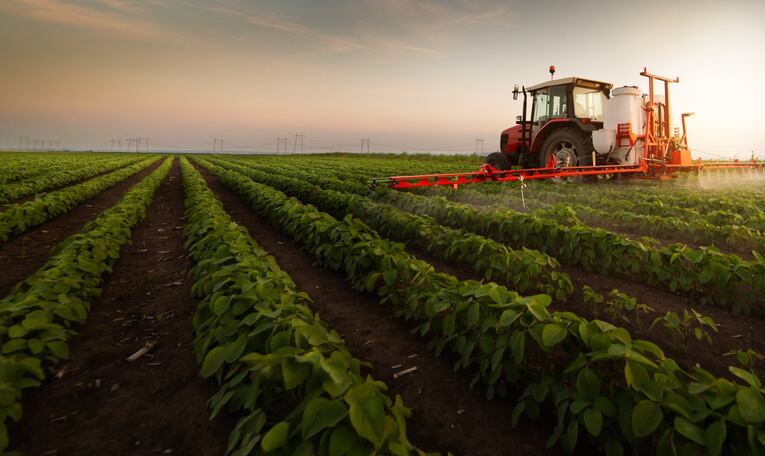
There is a case to be made that the CAP – rather than an instrument of environmental change – is in fact a farm income support mechanism.
Dr Candel said that while there is ‘an obvious greenwashing going on’ CAP, from its inception, was designed as a means to support farmer income.
“The CAP was not designed for environmental objectives. The CAP is basically a farm income support policy and many member states are fine with this… You could argue it is a politically legitimate reason to maintain the CAP income support… If you think farmer incomes are a legitimate concern on their own, just be frank about it. But don't sell the policy in terms of the good it will do to the environment.”
Certainly, on-farm margins are squeezed, farmer income in Europe is often below average earnings in member states and food production is undoubtedly a strategically significant sector.
But for the argument that CAP in its current form is a legitimate tool of farmer income support to hold water, it would need to help the farmers that need it most – small and medium-sized, family-owned operations. CAP’s payment calculations are currently based on the amount of land under cultivation, meaning that the support available is actually tilted towards large landowners.
This begs the question of whether – as a farm income support tool – CAP is fit for purpose. And, if it isn’t, why are European politicians so very resistant to reform?
Dr Candel believes that CAP’s political backing among many member states can be traced back to the fact that it does indeed favour wealthy landowners and vested interests. "That explains the unwillingness of at least some member states to not reform the policy. Often these large landowners have been shown to have very close political ties to the parties in government. We see that much of the CAP budget benefits a relatively small group of large farmers that in reality don't even need this type of support.”
In contrast, among European citizens and farmers there is a strong sentiment that CAP should become a better tool to promote sustainable agriculture practices. According to an EU survey, 92% of the citizens and 64% of farmers say that the CAP should improve its performance on environmental and climate protection.
“It’s not just consumers that want change. A majority of farmers are very much aware that farming practices need to change,” Dr Candel told us. “They are stuck. They have too few resources to invest in sustainability. That is why we should use these funds to help farmers speed up in terms of making their farming practices more sustainable. Loss of biodiversity, soil fertility, the effect of climate change, they will hurt not only EU farming or agriculture but our food system as a whole.”
Indeed, the food security and policy expert continued, a reform of CAP to focus on finding solutions to these long-term challenges would be in the best interests of the majority of farmers and better position the European food industry to meet future food security challenges.
“In the middle or longer term it might actually be beneficial to many European farmers to have genuine reform given the environmental and climate challenges form a major challenge to farming practices across Europe. Farmers will have to adapt, and I think we could better use this money to support them in making this transition rather than again stalling environmental objectives and leaving them for the future.
“These are some of the biggest challenges that European society faces. Climate change, loss of biodiversity… This is really about how we in the EU aim to tackle some of these big challenges.”

